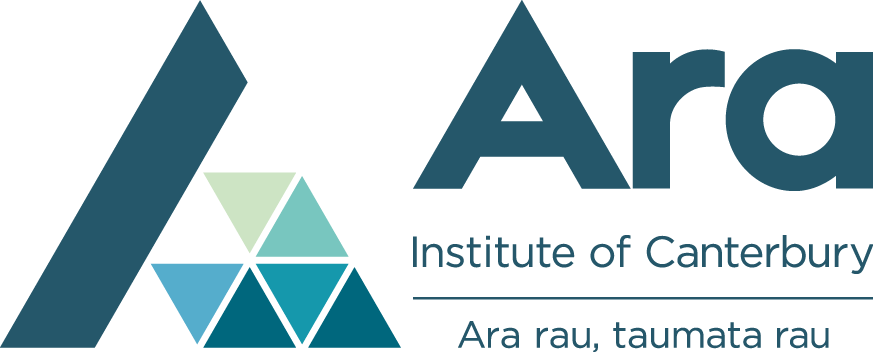About Diploma In Architectural Technology in Ara Institute of Canterbury
Contribute to the shape of our built environment as an architectural technician.
This programme will equip you with the essential knowledge and skills required to enter the architectural field as a technician working on domestic and commercial building projects.
You'll learn how to produce working drawings and documentation for small and medium scale projects that meet with the requirements of New Zealand legislation, codes of practice and New Zealand and Australian standards. The emphasis is on building technology, sound construction detailing and communication.
The programme includes professional practice, administration of contracts and theoretical knowledge for the Ministry of Business, Innovation and Employment (MBIE) Licensed Building Practitioner Scheme, Design 2.
Career opportunities
As a graduate you'll be able to work as an architectural technician or technologist. With further training and/or experience you may be able to work as an architectural designer, architect, interior designer, urban designer, landscape architect, design manager or design consultant, or move into a related field such as construction or planning.
Study pathways
Your study options as a graduate of this programme include diplomas and degrees in architecture, design, construction management and quantity surveying. If you completed your diploma with a B+ average, you can transition to year two of the Bachelor of Architectural Studies via a course in drawing and design.
Academic requirements
-
NCEA Level 2, which must include:
12 credits in Literacy Level 1 or above
and
12 credits in Numeracy Level 1 or above
or
New Zealand Certificate in Study and Career Preparation (Ara Architectural Studies Pathway) Level 3 or equivalent
Note: If you have undertaken examinations other than NCEA (e.g. International Baccalaureate, Cambridge Examination), Ara will assess your qualification for academic entry equivalency.
Alternative requirements
-
Still want to study but don't meet the Academic Requirements?
If you show that you have equivalent skills for tertiary study gained through study, work and/or life experience, you may be able to gain alternative entry.
Note: The number of courses you have to complete for this qualification may be reduced where you have relevant credits from previous study, or evidence of similar learning or experience in the workplace. Contact Ara for advice.
Additional requirements
English requirements
-
What if English is not my first Language?
If English is not your first language, we want to make sure that you will be successful in your chosen programme of study. Please provide a result from a test or qualification on the acceptable alternatives English Proficiency Outcomes Chart .
or
- If you are a New Zealand Citizen or Permanent Resident, complete an Admission and Enrolment form and Ara will contact you regarding a free assessment.
- If you are not a New Zealand Citizen or Permanent resident, book an IELTS, Pearson or other test through the Ara Examination Centre or in your home country.
IELTS scores used must be taken from a single IELTS test report form and are valid for two years from the date of the test.
Ara Institute of Canterbury Tuition Fees
| Courses |
Duration |
Tuition Fees |
| Engineering (2 Courses) |
2 Year - 3 Year |
NZD 20860 - NZD 21280 |
| Science (1 Courses) |
1 year |
NZD 21280 |
| Arts (1 Courses) |
3 year |
NZD 21280 |
| Hospitality & Tourism (3 Courses) |
1 Year - 2 Year |
NZD 19150 - NZD 19500 |
| Information Technology (IT) (1 Courses) |
1 year |
NZD 19630 |
| Banking & Finance (1 Courses) |
1 year |
NZD 19500 |
| Management (6 Courses) |
1 year |
NZD 18400 - NZD 20090 |
New Zealand Living Expenses
You'll require between $20,000 and $25,000 a year ($380–480 per week) for housing/rent, food, transportation, phone bills, internet usage, and entertainment, in addition to your tuition and insurance fees. The average living expense will be the same for everyone, regardless of their tuition or course price. Please keep in mind that these are only suggestions; the Immigration New Zealand requirement is $15,000 per year including return travel or an additional $2,000.
| General expenses |
Cost
(in NZ dollars) |
| Rent (per month) |
$800–$950 |
| Groceries (per week) |
$100–$150 |
| Gym membership (per year) |
$300 |
| Entertainment (per week) |
$50 |
| Milk (per litre) |
$3 |
| Coca Cola (per can) |
$2 |
| Cup of Coffee |
$3–$5 |
| Lunch from University food hall or campus café |
$7–$12 |
| Local calls made from a cell-phone |
$0.50–$1.50 |
| Taxi - 5 km ride |
$10–$12 |
| Movie ticket |
$10–$14 |
| Visit to doctor |
$45–$85 |
